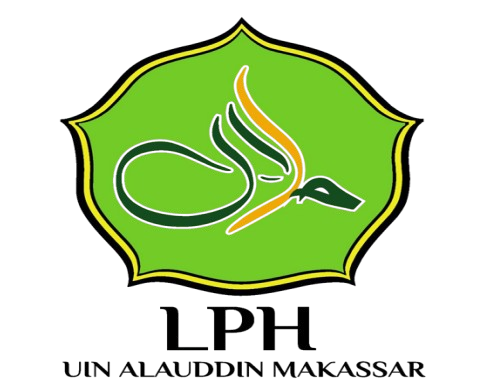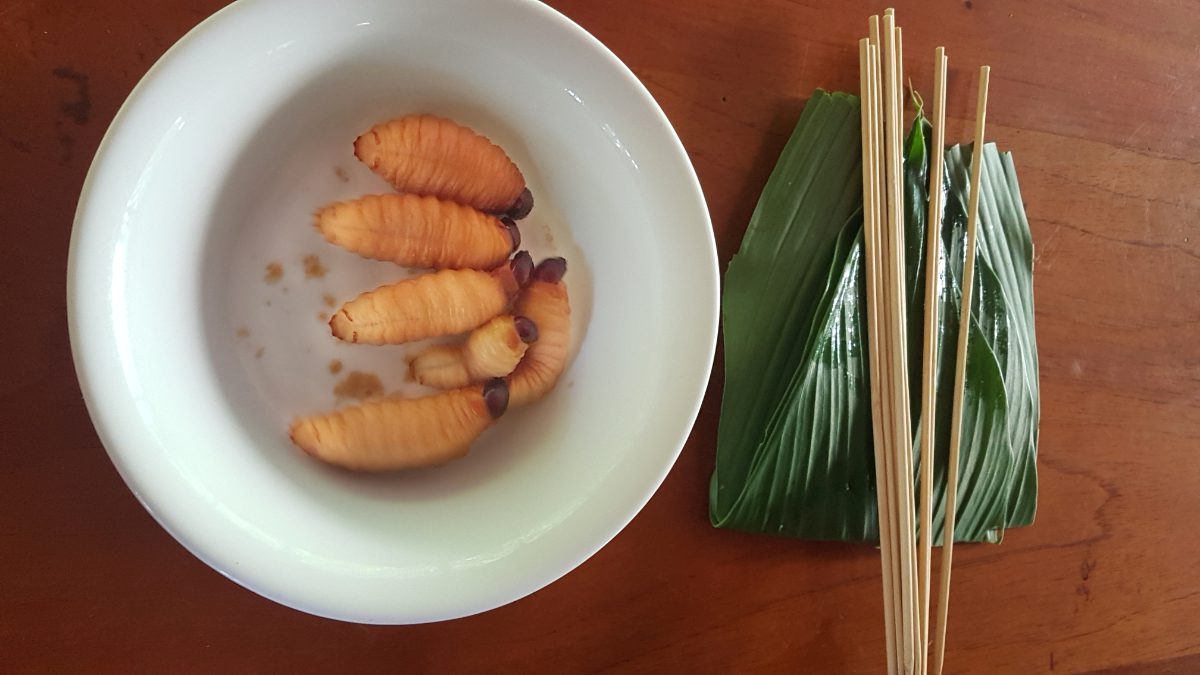A Legal Perspective on the Consumption of Sago Grubs
Both the Qur'an and the Hadith have addressed various types of animals, along with the legal rulings regarding their consumption—explicitly outlining those that are permissible (halal) and those that are prohibited (haram). However, beyond the animals whose statuses are clearly defined, there exist numerous species for which no specific legal position is mentioned in the primary Islamic sources. Despite this lack of clarity, many such animals have been traditionally consumed by communities, including Muslims, over extended periods of time. These animals are often regarded as delicacies and valued for their nutritional content.
One notable example is the sago grub (Rhynchophorus papuanus). Sago grubs are a type of animal-derived food widely consumed in several regions of Indonesia, particularly in Eastern Indonesia, including Sulawesi, Maluku, Ambon, and Papua. In South Sulawesi, for instance, several areas such as the Luwu Raya region—comprising Luwu Regency, North Luwu, East Luwu, and the city of Palopo—are known for communities that continue to consume sago grubs. These grubs are eaten both raw and after processing, including cooking or grilling (e.g., as skewered satay). They are consumed as snacks as well as part of main meals. In Papua, sago grubs are considered a popular and desirable food item. They may be prepared in various modern culinary forms such as sandwiches, spaghetti, fritters, fried rice mixtures, meatballs, and chips (Sri Hastuty, 2016). Among certain indigenous communities such as the Asmat tribe of Papua, sago grubs hold ritual significance and are viewed as an essential element of traditional ceremonies (source). Furthermore, in the Korowai indigenous group, sago grubs are reportedly used as a medium of exchange in customary land dispute settlements (Buta Yaluwo et al., Settlement of Land Disputes (Customary) of the Korowai Tribe, 2021).
For non-Muslim communities, the consumption of sago grubs may not present any religious concern, as their belief systems either do not adopt the concept of halal and haram, or apply such categories less rigorously. In contrast, for Muslims, the consumption of unlawful (haram) substances is strictly prohibited, and they are also enjoined to avoid consumables whose permissibility is uncertain (i.e., classified as syubhat). Engaging in the consumption of such ambiguous items is considered a sinful act within the Islamic legal and ethical framework.
Nevertheless, despite the unclear halal status of sago grubs, they have in fact been consumed by some Muslims, such as members of the Muslim community in Luwu Regency. According to a study by Sri Hastuty (2016), residents in Luwu intentionally cultivate sago grubs not only as feed for poultry but also for daily human consumption. Their consumption of sago grubs stems from long-standing cultural practices passed down through generations.
For those who consume them, sago grubs are considered a tasty and savory delicacy, as well as a nutritionally rich animal. Research by Vita Purnamasari (2010) found that sago grubs contain high-quality protein comparable to other sources of animal protein. Furthermore, a study by Isa Nagib Edrus and Sjahrul Bustaman (2007) found that sago grubs contain 13.80 % protein, 18.04% fat, and essential amino acids. According to the Indonesian Food Composition Data published by the Ministry of Health of the Republic of Indonesia, 100 grams of raw sago grubs contain: Water: 65.9 g, Energy: 241 kcal, Protein: 5.8 g, Fat: 21.6 g, Carbohydrates: 5.8 g, Fiber: 2.8 g, Ash: 0.9 g, Calcium: 20 mg, Phosphorus: 70 mg, Iron: 0.5 mg, Sodium: 210 mg, Potassium: 210.0 mg, Copper: 1.00 mg, Zinc: 7.7 mg, Thiamine (Vitamin B1): 0.17 mg, Riboflavin (Vitamin B2): 1.45 mg, and Niacin: 0.1 mg (source).
In addition to their nutritional value, sago grubs are believed to offer various health benefits, including increasing muscle mass and strength, improving mood, enhancing calcium absorption, strengthening bones and teeth, boosting the immune system, preventing diseases, lowering blood pressure, reducing cholesterol levels, improving digestion, and combating microbial infections (source). Moreover, several studies have proposed that sago grubs may serve as a viable alternative food source rich in nutrients and protein (Vita Purnamasari, Protein Quality of Sago Grubs, 2010). Recently, efforts have been made to promote sago grubs as an alternative food by processing them into products such as sago grub tempeh.
Although various studies have highlighted that sago grubs are highly nutritious and rich in protein, not all Indonesian communities perceive them as a beneficial or acceptable food source. In fact, many people regard sago grubs as disgusting and consider them haram (forbidden) to consume. Even among Islamic scholars, there is no consensus on the permissibility of consuming sago grubs. Some argue that they are haram because they fall into the category of *khaba'ith* (repulsive or filthy creatures), while others permit their consumption under certain conditions—such as in situations of necessity or if consumed unintentionally when mixed with vegetables or fruits. Based on the author’s investigation, the Indonesian Ulema Council (Majelis Ulama Indonesia/MUI), the body typically responsible for issuing authoritative fatwas for the Muslim community, has yet to release an official fatwa concerning the legal status of consuming sago grubs. This legal ambiguity has led to divergent opinions among the public regarding their permissibility, as reflected in public reactions to a recent viral news story about an elementary school student in Bojonegoro who brought sago grubs as part of his school lunch (see: *Detikjatim*, 13 October 2023).
The absence of a clear legal ruling and the divergent scholarly opinions on the halal or haram status of sago grubs have caused concern among Indonesian Muslims. This is particularly significant given research indicating that sago grubs have great potential as an alternative source of nutrients and protein, which could lead to the proliferation of food products containing sago grubs either as a primary ingredient or as a supplement in the future. For instance, a study by Nadimin et al. (2022) explored the substitution of sago grubs into flour and concluded that it holds great promise for the development of local biscuit products. The same study emphasized that sago grubs are a local food resource with high nutritional value and are widely available in Indonesia, though they remain underutilized. These findings underscore the urgent need for a comprehensive examination of the legal status of sago grub consumption to provide a sense of security for consumers, particularly Muslim consumers.
Are Sago Grubs Haram Because They Are Disgusting?
Although sago grubs are widely consumed and acknowledged to possess significant nutritional benefits, many people still refrain from consuming them due to their repulsive appearance. But does their perceived repulsiveness necessarily render them haram?
Indeed, there is a verse in the Qur'an that mentions the prohibition of consuming food categorized as *khabaits* (impure or disgusting), as stated in Surah Al-A'raf [7:157]: "...And He makes lawful for them what is good and prohibits for them what is impure (khabaits)...". The word *khabaits* is sometimes translated as "disgusting".
However, the issue arises when some people do not consider sago worms to be disgusting. So, while some may find them disgusting, others may not. Then how does Islam view this situation?
Scholars have differing opinions regarding the standard of what is considered "disgusting". Some scholars argue that the standard should be based on the perspective of the Arabs. Why? Because the Arabs were the first recipients of Islamic teachings, the Prophet came from among them, and the Qur'an is in their language. Those who hold this view argue that it is impossible for the Arabs to unanimously agree on something that is impure.
However, this view is rejected by scholars from the Maliki school. They argue that such a standard is not suitable because not all animals exist in Arab lands. They hold the opinion that any animal not explicitly declared haram in the texts (Qur'an or Hadith) is to be considered halal. This view is based on several verses, including Surah Al-Baqarah: 29, Surah Al-An’am: 145, and Surah Al-An’am: 119.
Shaykh Yusuf Al-Qaradawi explained that *khabaits* are things generally considered impure or disgusting by human nature, even if a few individuals might not find them so. There is also a view that the concept of disgust is highly subjective and should be based on each individual's perception. This view is supported by a hadith regarding the *dhab* (desert lizard).
In a hadith narrated by Ibn Abbas from Khalid bin Walid, it is reported that he entered the house of Maimunah with the Prophet Muhammad (peace be upon him), and a roasted *dhab* was served. The Prophet reached for it, but some women said: "Tell the Messenger of Allah what he is about to eat!" They then said: "O Messenger of Allah, this is *dhab* meat." The Prophet withdrew his hand. Khalid asked: "Is it haram, O Messenger of Allah?" He replied: "No, but it is not found in the land of my people, so I do not feel comfortable eating it." Khalid said: "So I took it and ate it while the Prophet looked on." (Narrated by Bukhari no. 5537 and Muslim no. 1946)
Returning to the Original Ruling
Because sago worms are not explicitly mentioned as haram in either the Qur’an or the Hadith, the default ruling is that they are permissible (mubah). Scholars base this ruling on several verses such as Surah Al-Baqarah: 29, Surah Al-Jathiyah: 13, and Surah Luqman: 20 (Yusuf Al-Qaradawi, *The Lawful and the Prohibited in Islam*, 1993, p. 20).
Thus, we return to the jurisprudential principle: "al-aslu fil asyya’ al-ibahah hatta yadulla dalil ‘ala al-tahrim" – the basic principle for things is permissibility unless there is evidence indicating prohibition. This principle is chosen to avoid actions that go against the laws set by Allah.
In Surah Al-An’am [6:140], Allah states: "Lost indeed are those who kill their children foolishly without knowledge, and forbid what Allah has provided for them, falsely attributing it to Allah. They have certainly gone astray and were not guided."
This verse emphasizes the prohibition of declaring something haram which Allah has made halal, and vice versa. Anyone who does so is considered to be falsely attributing something to Allah.
Although the Indonesian Ulema Council (MUI) has not yet issued a fatwa on the consumption of sago worms, based on the arguments presented, it can be concluded that consuming sago worms is permissible (halal).
Nevertheless, for animals not explicitly mentioned in the texts, thorough and comprehensive studies are still needed—especially from a scientific perspective—as such findings could potentially change the legal ruling. Wallahu a’lam (Allah knows best).

